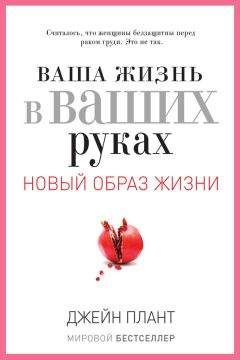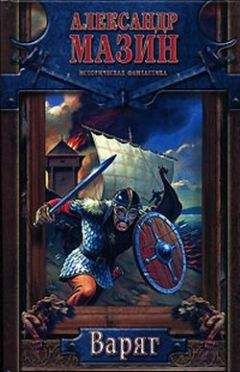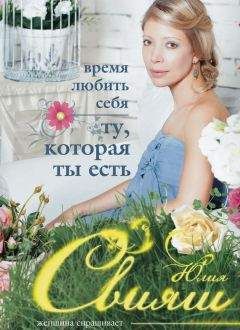Джейн Плант - Антирак груди
559
Smith-Warner, S.A. and Giovannucci, E., 1999. Fruit and vegetable intake and cancer. In: Heber, D., Blackburn, G.L. and Go, V.L.W., editors. Nutritional oncology. San Diego: Academic Press. 153–183.
560
American Institute for Cancer Research, 2000. Press Release (August 31, 2000) from the AICR Annual Research Conference 2000: New Methods in Clinical Trials Lending New Insights on Diet-cancer Connection, Expert Says.
561
National Cattlemen's Beef Association, 1999. Conjugated Linoleic Acid and Dietary Beef. An Update. Beef Facts: Nutrition, Series No. FS/N 016.
562
Ip, C., Scimeca, J.A., and Thompson, H.J., 1994. Conjugated linoleic acid. A powerful anticarcinogen from animal fat sources. Cancer, 74, 1050–1054.
563
Steinhart, Carol, 1996. Conjugated Linoleic Acid: The Good News about Animal Fat. Journal of Chemical Education, 73, A302. http://jchemed.chem.wisc.edu/Journal/Issues/1996/Dec/absA302.html
564
Campbell, T.C. and Junshi, C., 1994. Diet and chronic degenerative disease perspectives from China, American Journal of Clinical Nutrition, 59 (Suppl.), 11 535-11 615.
565
Bernstein, L. and Ross, R.K., 1993. Endogenous hormones and breast cancer risk. Epidemiol Reviews, IS, 48–65; Pike and others, 1993. Estrogens, progestogens, normal breast proliferation and breast cancer risk. Epidemiol reviews. 15, 17–35.
566
Prentice. R. and others, 1990. Dietary fat reduction and plasma oestrodial concentration in healthy postmenopausal women. J. Natl Cancer Inst, 82, 129–134.
567
www.mdanderson.org/departments/nutririon/display.cfm/id=51f759d8-98b2-lld5''813300508b603al4&method=displayfull&pn=51f7589e-98b2-lld5-813300508b603al4
568
Waxman, Jonathan, 2001. The Prostate Cancer Book. London: Vermillion.
569
Campbell, T, Colin, Campbell, Thomas M. II, Robbins, John and Lyman Howard, 2006. The China Study: The Most Comprehensive Study of Nutrition Ever Conducted and the Startling Implications for Diet, Weight Loss and Long-term Health. Benbella Books.
570
Ornish, D and others, 2005. Intensive lifestyle changes may affect the progression of prostate cancer. Journal of Urology, 174 (3), 1065–1069.
571
Waxman, Jonathan, 2001. The Prostate Cancer Book. London: Vermillion.
572
Campbell, T. Colin, Campbell, Thomas M. II, Robbins, John and Lyman Howard, 2006. The China Study: The Most Comprehensive Study of Nutrition Ever Conducted and the Startling Implications for Diet, Weight Loss and Long-term Health. Benbella Books.
573
Plant, Jane and Tidey, Gill, 2005. Eating for Better Health. Virgin Books. See also, Campbell, T, Colin, Campbell, Thomas M. II, Robbins, John and Lyman Howard, 2006. The China Study: The Most Comprehensive Study of Nutrition Ever Conducted and the Startling Implications for Diet, Weight Loss and Longterm Health. Benbella Books; Robbins, John, 1987. A Diet for a New America . Stillpoint Publishing.
574
Newby, J.A. and Howard, C.V., 2006. Environmental influences in cancer aetiology. Journal of Nutritional and Environmental Medicine, 2006, 1–59.
575
Campbell, T.C. and Junshi, C., 1994. Diet and chronic degenerative disease perspectives from China. American Journal of Clinical Nutrition, 59 (Suppl.), 11 535-31 615.
576
Food Chemical News, April 29, 1996.
577
Kurzer, M.S. and Xu, X., 1999. Dietary Phytoestrogens. Annual Reviews of Nutrition, 17, 353–381.
578
Adlercreutz, H, 1995. Phyto-oestrogens: Epidemiology and a Possible Role in Cancer Protection. Environmental Health Perspectives, 103 (Suppl. 7), 103–112; Adlercreutz, H., Mazur, W., Bartels, P., Elomaa, V.-V., Watanabe, S., Wahala, K., Landstrom, M., Lundin, E., Bergh, A., Damber, J.-E., Aman, P., Widmark, A., Johansson, A., Zhang, J.-X. and Hallmans, G., 2000. Phytooestrogens and Prostate Disease. J. Nutr., 130, 658S-659S.
579
http://www.ifst.org/hottop34.htm
580
Adlercreutz, H., Mazur, W., Bartels, P., Elomaa, V.-V., Watanabe, S., Wahala, K., Landstrom, M., Lundin, E., Bergh, A., Damber, J.-E., Aman, P., Widmark, A., Johansson, A., Zhang, J.-X. and Hallmans, G., 2000. Phyto-oestrogens and Prostate Disease. J. Nutr., 130, 658S-659S.
581
Zhou, J.-R., Gugger, E.T., Tanaka, T., Guo, Y., Blackburn, G.L. and Clinton, S.K., 1999. Soy-bean phytochemicals inhibit the growth of transplantable human prostate carcinoma and tumor angiogenesis in mice. J. Nutr., 129, 1628–1635; Davis, J.N., Singh, B., Bhuiyan, M. and Sarkar, F.H., 1998, Genistein-induced upregulation of p21WAFl, downregulation of cyclin B, and induction of apoptosis in prostate cancer cells. Nutr Cancer, 32, 123–131; The Royal Society, 2000. Endocrine-disrupting chemicals. Document 06/00. The Royal Society; Setchell, K.D.R., 1998. Phyto-oestrogens: the biochemistry, physiology and implications for human health of soy isoflavones, Nutrition, 68, 1333S-1346S.
582
Glenville, Marilyn, 2003. The New Natural Alternatives to HRT. Second edition. Kyle Cathie.
583
Campbell, T. Colin, Campbell, Thomas M. II, Robbins, John and Lyman Howard, 2006. The China Study: The Most Comprehensive Study of Nutrition Ever Conducted and the Startling Implications for Diet, Weight Loss and Long-term Health. Benbella Books.
584
Glenville, Marilen, 2003. The New Natural Alternatives to HRT. Second edition. Kyle Cathie.
585
Robbins, John, 1987. A Diet for a New America . Stillpoint Publishing; Kradjian, R.M., 1994. Save Yourself from Breast Cancer. New York: Berkley Books; McDougall, John, 2000. The McDougall Program for Women; Lee, John R., 1999. Natural Progesterone. Second revised edition. Jon Carpenter; Plant, Jane and Tidey; Gill, 2003. Understanding, preventing and overcoming osteoporosis. Virgin Books; Fox, Douglas, 2001. Hard cheese. New Scientist, 15 December 2001, 42–45.
586
http://wayne.unl.edu/00aprilcolumn.htm
587
Martin, Peter, 2002. Milk: Nectar or Poison? Sunday Times Magazine, July 21, 2002. 46–54.
588
Website of the American Cancer Society, http://www.cancer.org/docroot/eto/content/eto_5_3x_soy-bean.asp?siteare a=&viewmode=print
589
Gottlieb, Scott, 2003. Men should eat nine servings of fruit and vegetables a day. BMJ, 326, 1003.
590
UK Ministry of Agriculture, Fisheries and Food advice as reported in the Sunday Times, 1999.
591
Willet, W.C., 1994. Micronutrients and cancer risk. Am J. Clin. Nutr., 59, (suppl), 1162S-5S. See also: Willett, Walter C., Colditz, Graham A. and Mueller, Nancy A., 1996. Strategies for Minimising Cancer Risk. Scientific American, Special Issue, What you need to know about Cancer, September, 275, 3, 88–95.
592
Huang, M.-T., Asawa T., Ho C.-T., Rosen R.T., eds, 1994. Food phytochemicals for cancer prevention I – fruits and vegetables. Washington, DC: American Chemical Society; Ho, C.-T., Osawa, T., Huang, M.-T. and Rosen, R.T., eds, 1994. Food phytochemicals for cancer prevention II – teas, spices, herbs. Washing ton, DC: American Chemical Society; American Institute for Cancer Research, ed., 1996. Dietary phytochemicals in cancer prevention and treatment. New York: Plenum Press; Liu, R.H. and Espinosa, A., 2000. Bio-active Compounds from Fruits and Vegetables in the Prevention of Cancer. In: Agriculture in the New Century: Managing Bio-Resources and Bio-Diversity, National Taiwan University, Taipei, Taiwan, 53–59.
593
Greenwald, Peter, 2002. Cancer chemoprevention. BMJ, 324, 714–718.
594
Alpha-Tocopherol Beta-Carotene Cancer Prevention Study Group, Heinonen, O.P., Huttunen, J.K. and Albanes, D., 1994. The effect of vitamin E and beta-carotene on the incidence of lung cancer and other cancers in male smokers. N Engl J. Mod, 330, 1029–1035; Omenn, G.S., Goodman, G.E., Thornquist, M.D., Balmes, J., Cullen, M.R. and Class, A., 1996. Effects of a combination of beta carotene and vitamin A on lung cancer and cardiovascular disease. N Engl J. Med, 334, 1150–1355.
595
Ursell, Amanda, 2007. Eat a rainbow to stay healthy. The Times (T2), 6 February, 2007.
596




